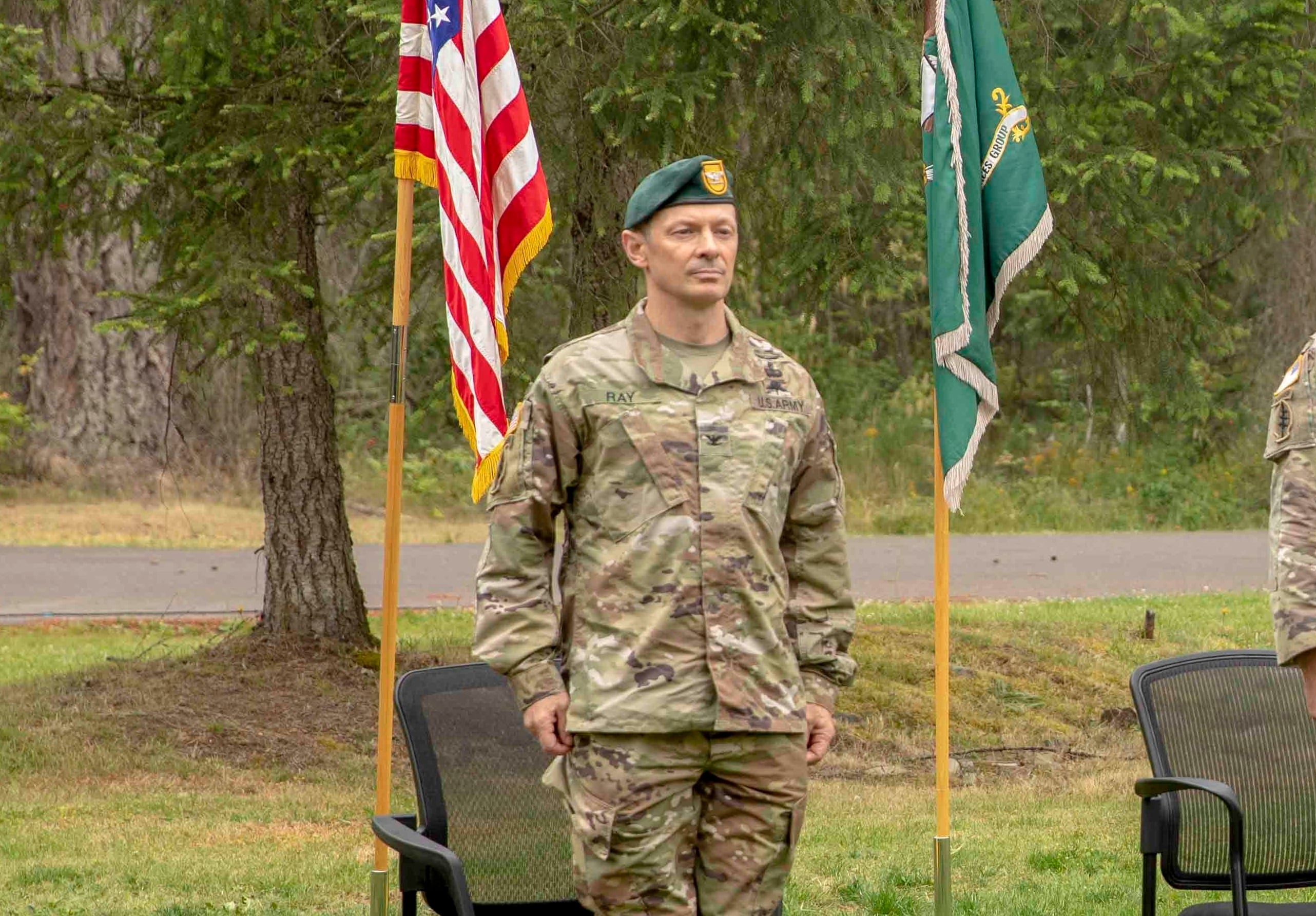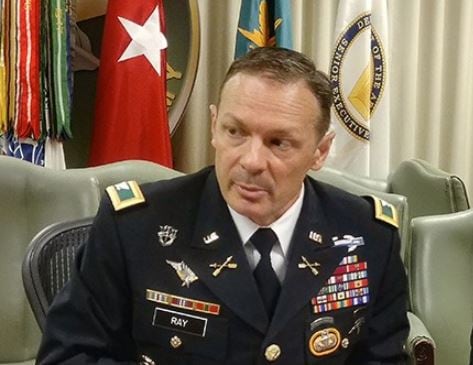An inspector general complaint about an Army Special Forces group commander’s alleged overreactions and berating of subordinates was dismissed months before he was accused of domestic violence and engaging in an armed, two-hour standoff with police near Joint Base Lewis-McChord, Washington, on Dec. 27.
The IG complaint signals that at least some leaders were aware another officer had raised doubts about the Green Beret colonel’s temperament. It also raises the question of whether officers earmarked for greater authority are properly held to account by investigations from within their own chain of command.
Former 1st Special Forces Group boss Col. Owen G. Ray, 47, was suspended from his latest role as chief of staff for I Corps after he was arrested and charged by Pierce County prosecutors with two counts of felony harassment, one count of kidnapping, two counts of assault and one count of reckless endangerment.
The charges stemmed from a night that court documents alleged involved Ray hitting his wife, grabbing a pistol and rifle from his gun locker and threatening to kill police if they attempted to arrest him.
“Col. Ray’s decorated career as a soldier is a testament to his service to our country,” Jared E. Ausserer, an attorney with Puget Law Group representing Ray, said in a statement. “He understands the seriousness of these allegations and hopes to take advantage of services and counseling to better himself as husband and a father, in hopes that [he can] get back to his family that he loves more than anything.”
But prior to the Dec. 27 incident, concerns about Ray had already been raised in an IG complaint made by a Green Beret officer who served under him at 1st Group. Ausserer declined to comment on the complaint.
“They always say ‘see something; say something,’ but the Army has to do something too,” said the now-retired officer who made the complaint and asked to remain anonymous to protect his new career. “At the end of the day, this is a failure on the leadership in the SF channels.”
A substantiated investigation could have sparked a range of actions, from anger management counseling to relief of command, the officer explained.
However, 1st Special Forces Command’s IG office returned the complaint as “not substantiated” this June, according to records reviewed by Army Times.
RELATED

One month later, Ray was elevated to be I Corps’ chief of staff, a coveted role that often leads to the general officer ranks. Before being suspended, though, Ray was not in a promotable status, according to I Corps.
The complaint alleged Ray created a toxic command climate by setting expectations that everyone should act like him, which meant putting work before all else, even family relationships.
“He exacerbates this expectation by shaming people in public and berating them,” a statement submitted with the original complaint reads. “Additionally, he regularly overreacts on little information and has emotional outbursts.”
Ray pushed key staff to work 14-hour days and discouraged the complaining officer from carving out time in the evenings to be with his family for dinner, according to the statement.
“He acknowledged that he is an ‘asshole (his word)’ to work for, but yet does not seem to learn or try to be different in his approach,” the statement added.

A second staff officer who was interviewed as part of the IG complaint said Ray was prone to swearing at subordinates and threatening their careers.
For instance, Ray said that a major serving as a liaison in South Korea needed to “get his fucking LinkedIn profile ready ... because he’s done,” after that major had an NCO represent him during a teleconference he couldn’t attend, the staff officer who was at the meeting said. The comments were made on a call with soldiers from other units and were unnecessary, according to the staff officer.
During a separate incident, Ray missed a teleconference by an hour due to a mix up with time zones. He began “swearing, shaking” and “throwing papers on the table” before telling staff to lace up in running shoes for a roughly 7-mile run, the officer said. The pace was brisk and about two-thirds fell out.
After returning, Ray “did not give a second look” and “just headed into his office,” while other people jumped into cars to check on those who had fallen out to ensure they weren’t injured or dehydrated, according to the complaint, which described the same incident.
Spokespeople at 1st Special Forces Command deferred comment to Army officials at the Pentagon, who confirmed the IG complaint against Ray was investigated, but declined to discuss why it was determined unsubstantiated.
“As a matter of Army policy, we do not comment on the details of Inspector General investigations,” said Army spokeswoman Col. Cathy Wilkinson.
While assigned to I Corps, Ray was not the subject of any other investigations, according to that unit’s IG office.
The officer who made the complaint believed an inquiry from outside the Special Forces chain of command was warranted and tried to submit his complaint to the Department of the Army Headquarters. Instead, he was instructed to file it with 1st Special Forces Command’s IG office.
“My feeling is they kind of just looked the other way, swept it under the rug and focused very narrowly on specific dates and times” that were difficult to substantiate, the officer said. “I don’t think they interviewed all the people on the witness list I gave them.”
In the military, many investigations into senior leaders are shrouded in mystery, even if wrongdoing is substantiated.
“There’s not a lot of transparency from Army leadership on senior leader misconduct,” the officer said. “You hear rumors, you hear allegations and you see a guy quietly retire but there’s never any public accounting of what happened and lessons learned.”
Kyle Rempfer was an editor and reporter who has covered combat operations, criminal cases, foreign military assistance and training accidents. Before entering journalism, Kyle served in U.S. Air Force Special Tactics and deployed in 2014 to Paktika Province, Afghanistan, and Baghdad, Iraq.




